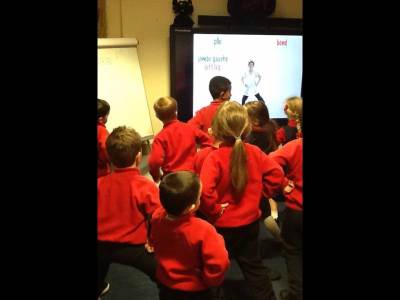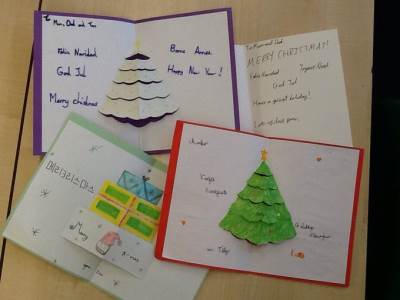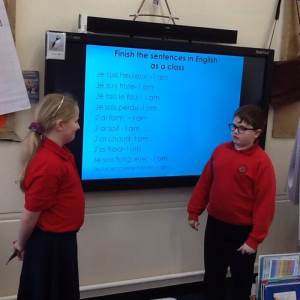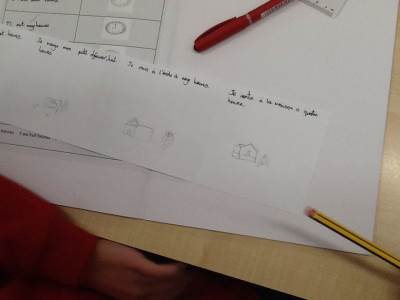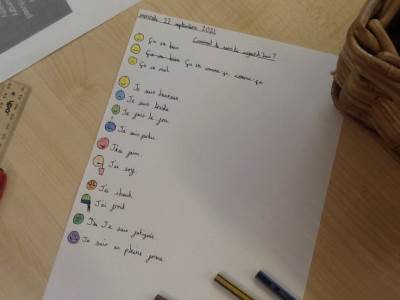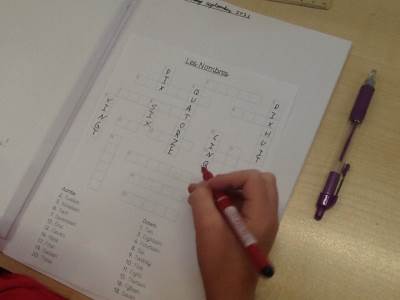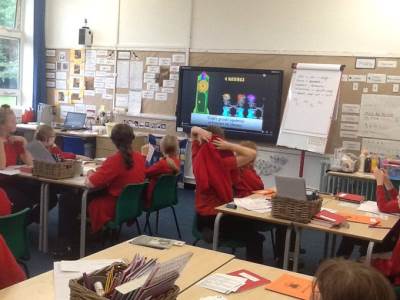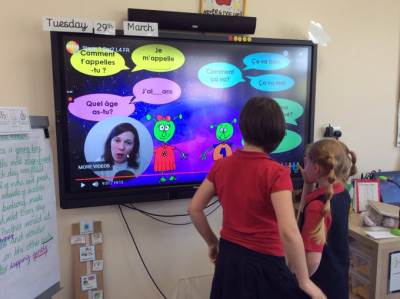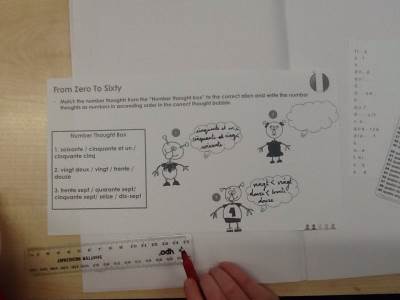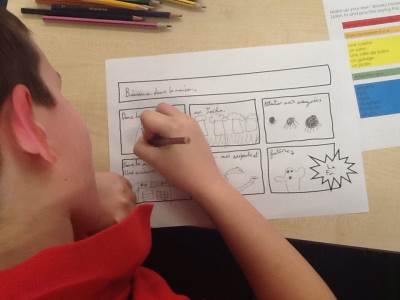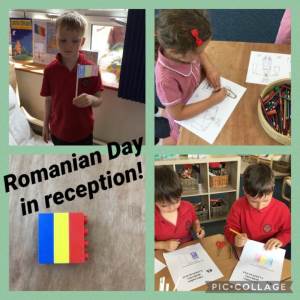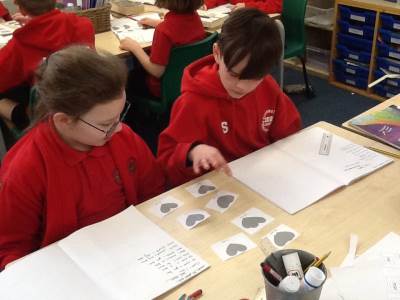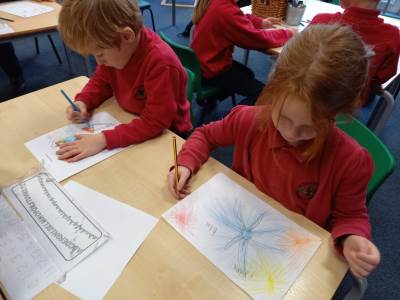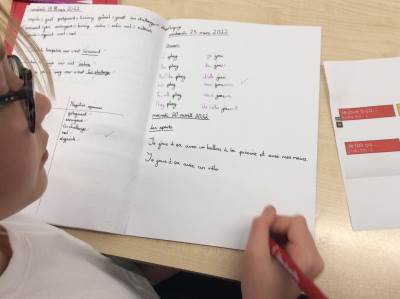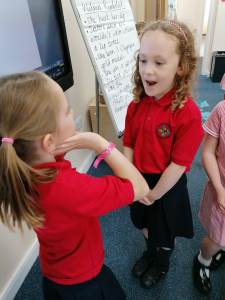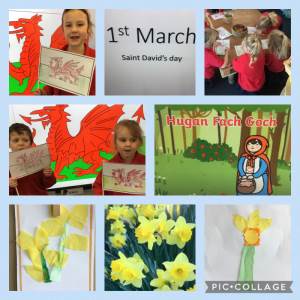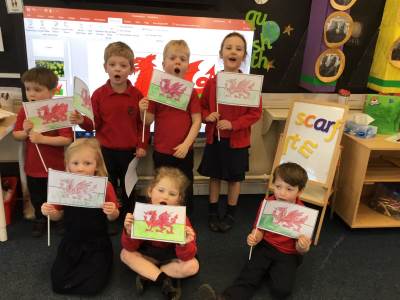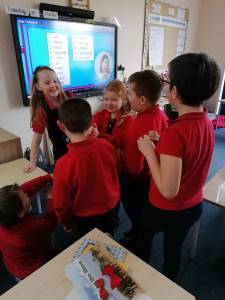Languages
Intent - What do we aspire for our children?
Our Curriculum Intent for Modern Foreign Languages
At Cuddington Primary School, learning a language gives children a rich cultural experience and deepens their understanding of the world. Our French curriculum develops speaking, listening, reading and writing skills, using authentic sources to help pupils express ideas and understand others. The knowledge and skills gained lay foundations for further language learning, enabling children to become confident linguists and broaden their global understanding.
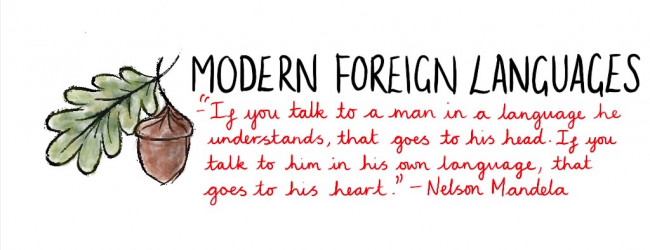
Implementation - How will we deliver the Modern Foreign Languages curriculum?
The Cuddington Languages curriculum has been designed to progressively develop a language over time and prepare children for future language learning. Lesson plans ensure children acquire a bank of knowledge, vocabulary and skills as they build on previous units already studied. In each year group, there is room for retrieval through routines at the start or end of the lesson; this guarantees that the children continue to revisit previous learning in an engaging way. To support the teaching and learning of languages in our school, we use the Primary Languages SoW. Knowledge Organisers show the progress children make over time and display knowledge of vocabulary, phonics, grammar and link learning to the primary school calendar. These indicate the types of activities and development of language learning skills across each Key Stage. Details of the Overview of French Learning covered in each year group can be found in the document below.
Children develop a love for language learning and knowledge from early years. The learning of French, in Early Years and Key Stage 1, is not a formal lesson but children are introduced to Modern Foreign Languages through the use of classroom routines and are given opportunities to hear and speak French through stories, games and songs regularly. Teachers use the KS1 Language Explorers, where a variety of topics and activities are available to use with Reception, Year 1 and Year 2. This will give them a good base of knowledge to build upon in Key Stage 2.
All children in Key Stage 2 are taught French in a weekly lesson. The teaching and learning is based on the 2014 MFL National Curriculum through Click to Teach video lessons from the Primary Languages Network scheme of work. Lesson plans ensure progression in language learning across the four core skills (reading, speaking, listening and writing) and also the DfE 12 Attainment Targets. Each unit of learning incorporates vocabulary, grammar and phonics knowledge and skills.
Children are encouraged and supported to develop their speaking and listening skills through conversational work, singing activities and games. They learn to speak with increasing fluency, spontaneity and find ways of communicating what they want to say, including through discussion and asking questions. As confidence and skills grow, children record their work through pictures, captions and sentences.
Promoting linguistic and cultural diversity
Children are encouraged lifelong language learning which promotes respect for not only each other but also inside the school and within the wider communities and society. French lessons not only progress children’s linguistic skills but also their confidence and self-esteem. Children work collaboratively and celebrate each other’s achievements by becoming aware of the challenge communication presents. Language learning teaches the value of the importance of our own cultural identity, practices and values as well as those from people in other countries. Children learn to be tolerant of others and have a greater acceptance of the world we live in and its cultural diversity.
Language Day
Learning another language gives children a new and broader perspective on the world, encouraging them to understand their own culture and those of others. On our Language day, the whole school promotes and celebrates languages from around the world as well as discovering new countries and their cultures. Cross-curricular links are made with language learning through the exploration of artists and dances from around the world.
Languages
Impact - How do we know our Modern Foreign Languages curriculum is effective?
Pupil Voice
To assess the abilities and progress children have made, their views and opinions are highly valued in the further development of the Modern Foreign Languages curriculum. Children are able linguists when they can confidently explain their learning, speak with enthusiasm and demonstrate key skills. Suggestions enable teachers to adapt their lessons in line with the needs of the children.
High-Quality Outcomes
All children in KS2 record learning in French folders or books. These act as a device for practising key skills and show understanding of the curriculum. Curriculum Book showcase high-quality pieces of work and celebrate the diligence and time that has been taken to deepen their knowledge and refine their work.


 01270360030
01270360030 



